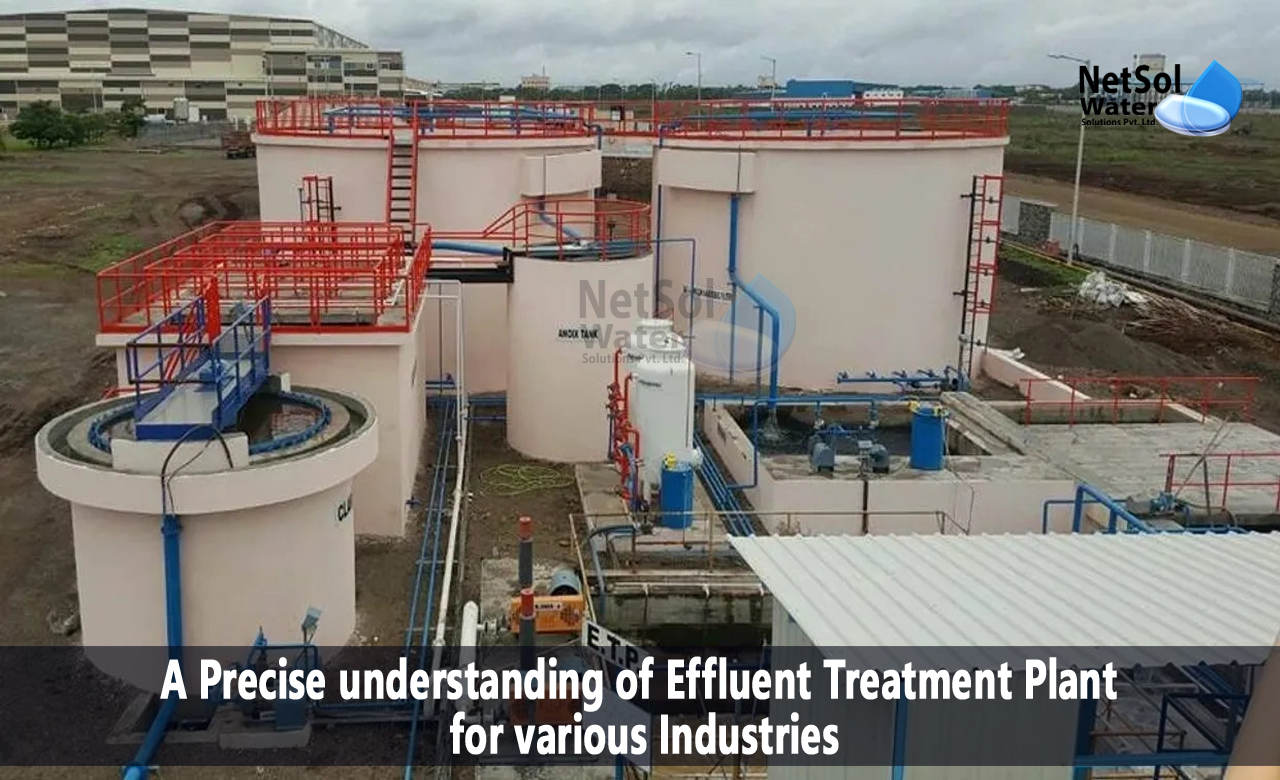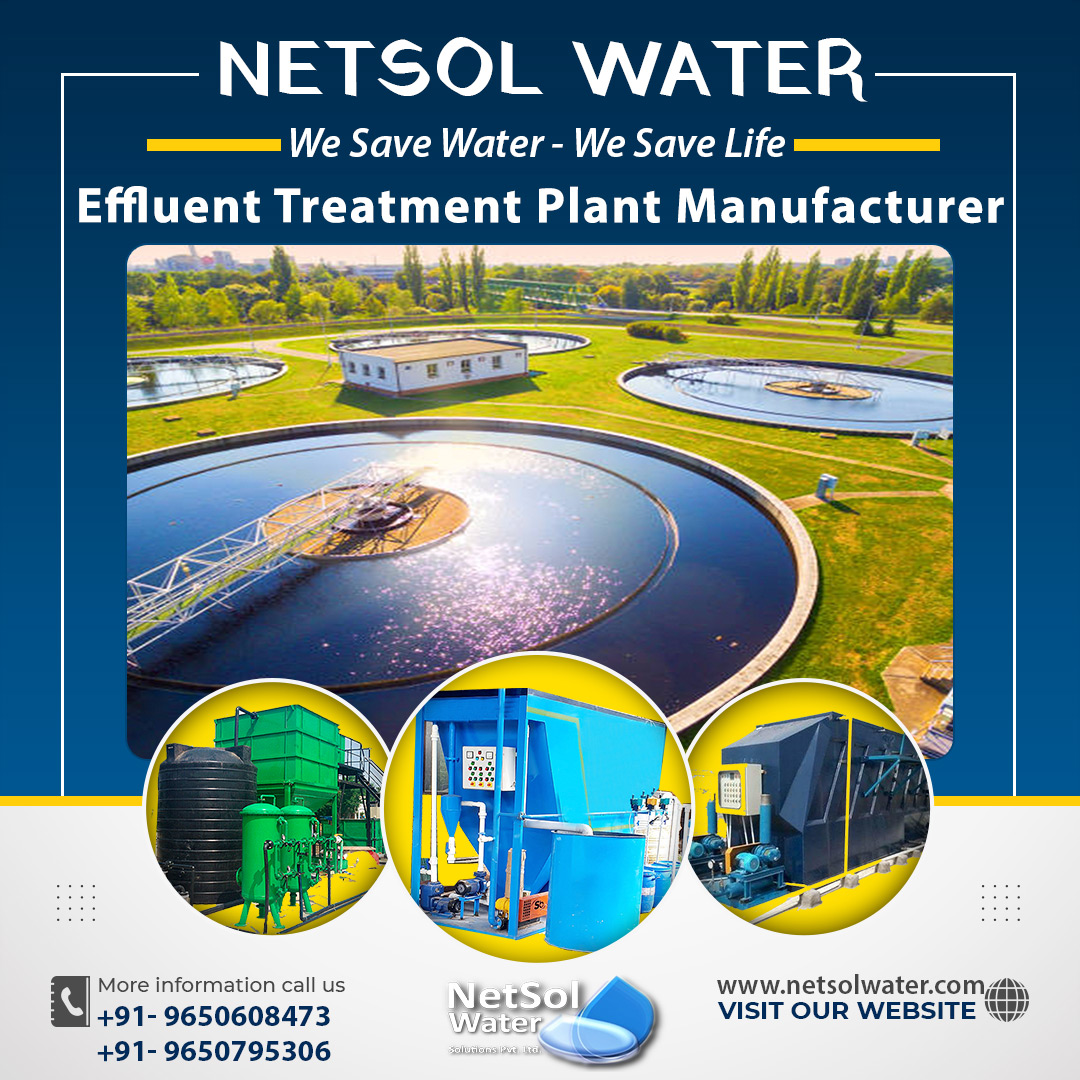A Precise understanding of ETP Plant for various Industries
Effluent Treatment Plant (ETP) is a crucial facility that is used by various industries to treat their wastewater before discharge.
The primary goal of an ETP is to remove contaminants and pollutants from the water to ensure that the discharged water meets the legal and environmental standards.
Here we will understand Effluent Treatment Plants for various industries, including dairy, textiles, food, and beverage.
What is an Effluent Treatment Plant?
An Effluent Treatment Plant (ETP) is a system that is designed to remove pollutants and contaminants from the wastewater generated by various industries. The ETP system uses various physical, chemical, and biological processes to treat the effluent and make it safe for discharge into the environment.
The ETP system is crucial for industries as it helps them to comply with the regulatory standards set by the government and also protects the environment from pollution.
Components of Effluent Treatment Plant:
The ETP consists of various components that work together to treat the wastewater effectively. The major components of ETP are as follows:
Screens:
The screens are the first component of the ETP that removes large particles and debris from the wastewater. The screens are usually made up of stainless steel or plastic and can be either manual or automatic.
Equalization Tank:
The equalization tank is used to balance the flow of wastewater and maintain a consistent flow rate. The tank also helps in reducing the shock loads on the treatment system.
pH Correction:
The pH correction unit is used to adjust the pH level of the wastewater. The pH level of the wastewater needs to be within a specific range for effective treatment.
Chemical Treatment:
The chemical treatment unit involves the addition of coagulants and flocculants to the wastewater. The coagulants and flocculants help in settling and removing the suspended solids from the wastewater.
Biological Treatment:
The biological treatment unit involves the use of microorganisms to degrade the organic pollutants in the wastewater. The biological treatment can be either aerobic or anaerobic.
Sludge Treatment:
The sludge treatment unit is used to treat the sludge that is generated during the treatment process. The sludge is usually treated using various processes such as dewatering, digestion, and drying.
Effluent Treatment Plant for Dairy Industry:
The dairy industry produces a large amount of wastewater that contains high levels of organic matter, such as milk solids, fats, and proteins.
The effluent also contains significant amounts of phosphorus and nitrogen. An ETP for the dairy industry typically includes physical, chemical, and biological treatments.
The physical treatment involves screening, sedimentation, and filtration processes to remove large solids, fats, and oils. The chemical treatment involves adding coagulants and flocculants to thewastewater to enhance the sedimentation process and remove finer particles. Finally, the biological treatment involves using bacteria to consume the organic matter in the wastewater.
Effluent Treatment Plant for Textile Industry:
The textile industry generates a significant amount of wastewater that contains various pollutants, such as dyes, chemicals, and heavy metals.
The wastewater also has a high pH level and temperature, making it challenging to treat. An ETP for the textile industry typically includes physical, chemical, and biological treatments.
The physical treatment involves screening, sedimentation, and filtration processes to remove solid particles, fibers, and other materials. The chemical treatment involves adding coagulants, flocculants,and other chemicals to the wastewater to neutralize the pH and remove dyes and other pollutants. The biological treatment involves using microorganisms to consume the organic matter inthe wastewater.
Effluent Treatment Plant for Food Industry:
The food industry generates wastewater that contains a variety of organic matter, such as oils, fats, and sugars.
The effluent also contains high levels of nutrients, such as nitrogen and phosphorus.
An ETP for the food industry typically includes physical, chemical, and biological treatments.
The physical treatment involves screening, sedimentation, and filtration processes to remove solids, fats, and oils. The chemical treatment involves adding coagulants, flocculants, and other chemicalsto the wastewater to enhance the sedimentation process and remove finer particles. Finally, the biological treatment involves using bacteria to consume the organic matter in the wastewater.
Effluent Treatment Plant for Beverage Industry:
The beverage industry generates wastewater that contains various pollutants, such as organic matter, chemicals, and heavy metals.
The effluent also has a high pH level and temperature, making it challenging to treat.
An ETP for the beverage industry typically includes physical, chemical, and biological treatments.
The physical treatment involves screening, sedimentation, and filtration processes to remove solids, fats, and oils. The chemical treatment involves adding coagulants, flocculants, and other chemicalsto the wastewater to neutralize the pH and remove pollutants. The biological treatment involves using microorganisms to consume the organic matter in the wastewater.
Conclusion:
In conclusion, an Effluent Treatment Plant is a vital facility that is used by various industries to treat their wastewater before discharge.
The ETP typically includes physical, chemical, and biological treatments to remove pollutants and contaminants from the water. The dairy, textiles, food, and beverage industries generate differenttypes of wastewater, and the ETP design and treatment processes may vary depending on the wastewater characteristics.
However, the goal of an ETP remains the same, which is to ensure that the discharged water meets the legal and environmental standards.
Leading manufacturer of sewage treatment plants in India.
Netsol Water is the leading manufacturer, supplier, and exporter of a quality selection of water treatment, and wastewater treatment products in India, by using advanced sewage treatment methods.
RO plants, water softeners, ETPs, STPs, DM plants, AMC, O&M, Ultra filtration, UV, Ozonation, ZLD plants, Anoxic tanks, and other goods and services are available from us. We also provideservices to businesses in sectors including automotive, pharmaceutical, textile, pulp & paper, beverages, refineries, schools, hospitals, office buildings, and hotels, among others.
Call us at +91 9650608473 or email at enquiry@netsolwater.com for further information.




